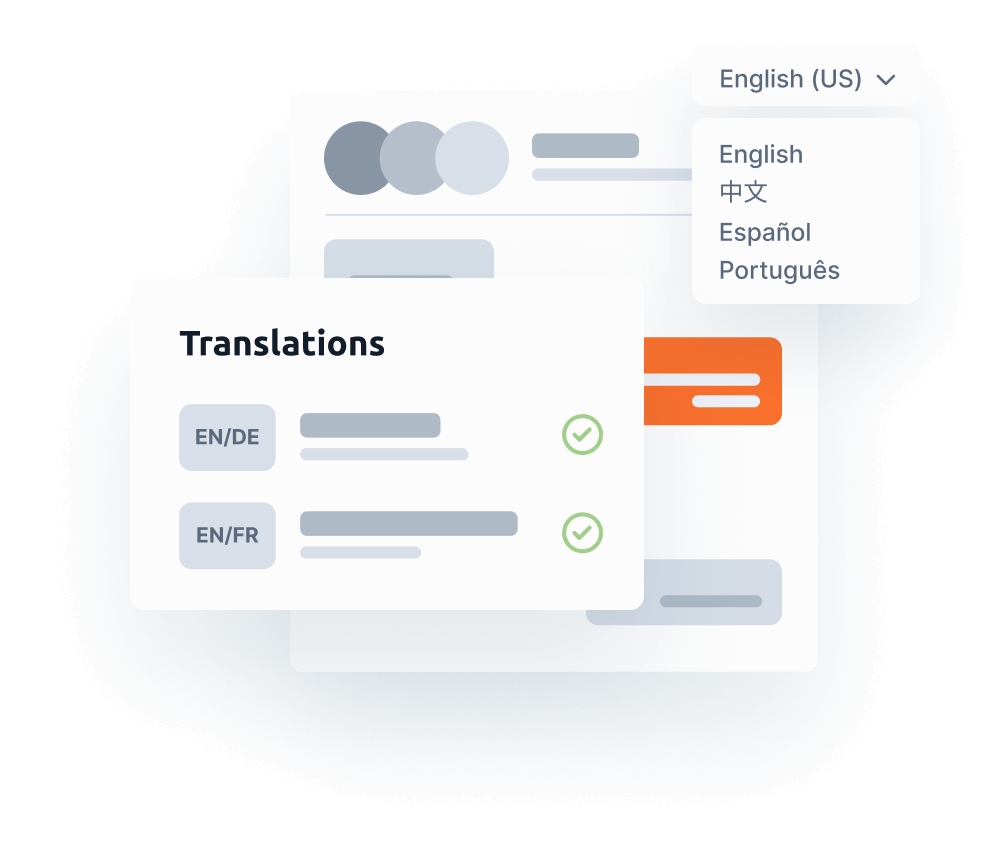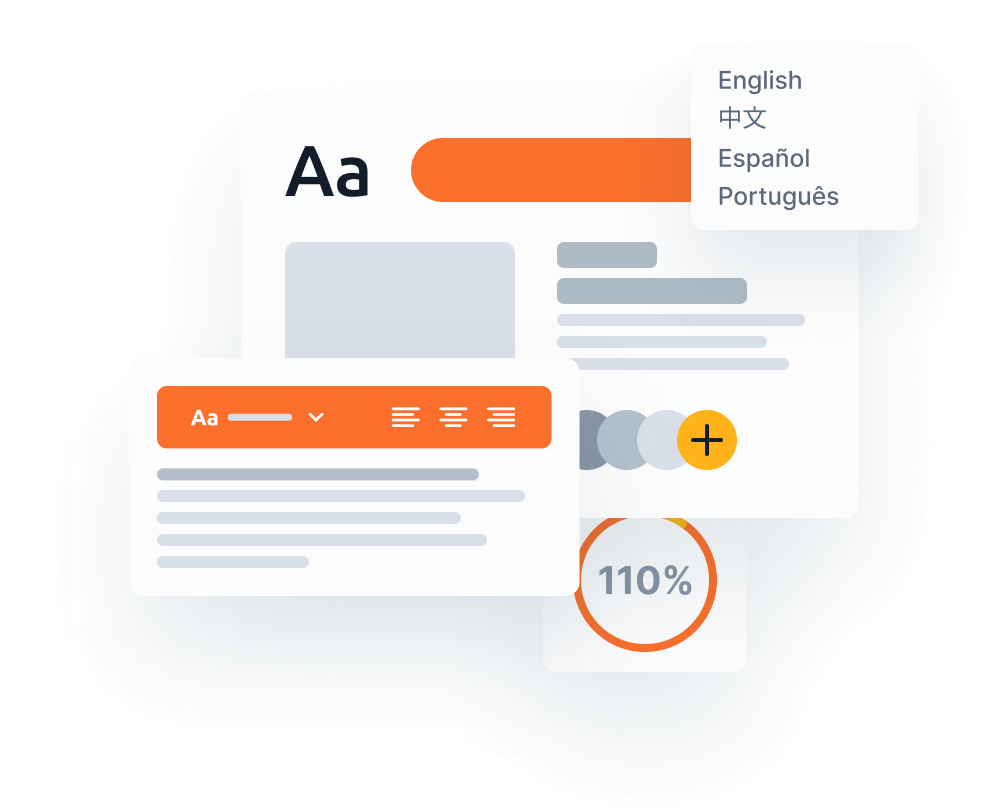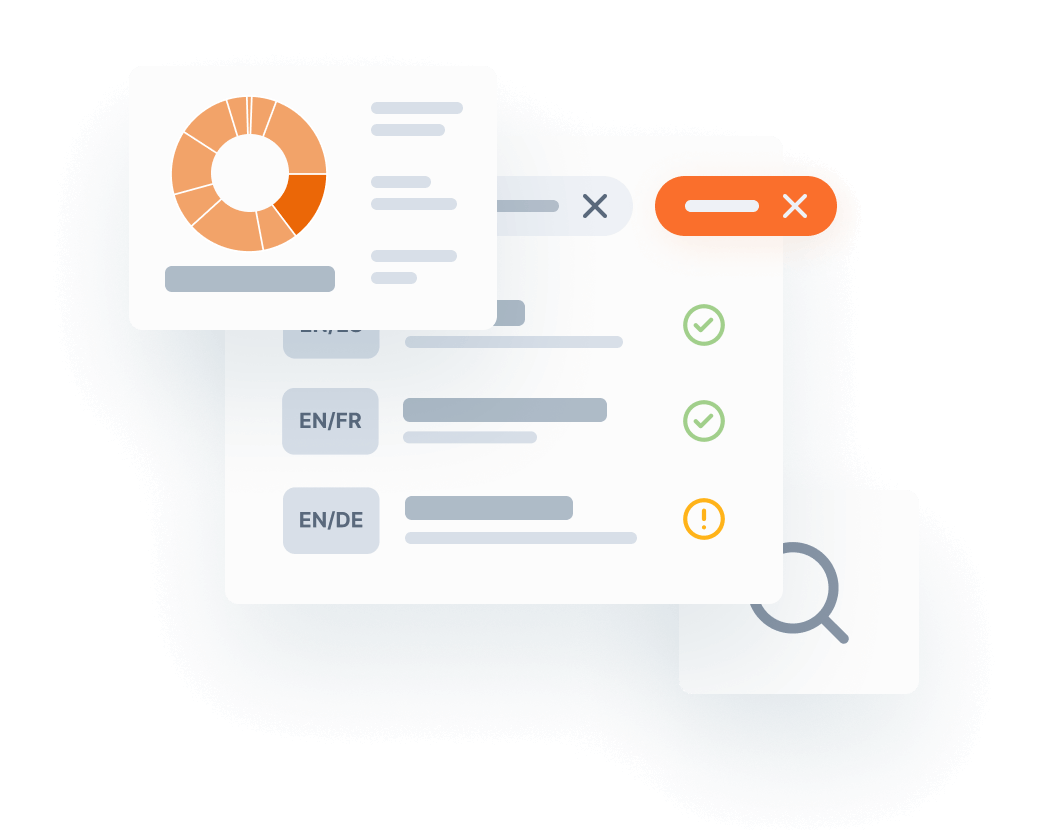Terminology Management
Deliver consistent messages in every language
Milengo's terminology management services enables companies to standardize corporate language, improve product usability, and ultimately reduce the cost of localization

Application of correct terminology in all target markets
Consistent corporate brand communication
Central management of your linguistic assets
Accurate and precise translations from the start
ECQA-certified terminology managers


One global brand voice
When teams from across the enterprise collaborate on the same project, inconsistencies in corporate language can arise. These inconsistencies can escalate as your business grows across borders, leading to inaccurate translations that eat up valuable time and money to amend.
Milengo’s terminology management gives you full oversight on key language choices related to your products and services. Keep calm knowing your messaging remains consistent throughout all corporate content – from user manuals to websites, software applications and marketing collaterals.

Improve productivity while reducing errors
Terminology increases linguist productivity and eases review workflows, especially when it comes to technical documents. With terminology databases (termbases) available directly within your translation tool, linguists can easily apply the approved terms in their work, maximizing translation process efficiency.
The correct application of terms is then automatically checked during our quality assurance procedure, establishing a failproof mechanism and eliminating the risks associated with legal or branding issues.

How terminology management works
Milengo’s terminology specialists analyse your corporate language with the aim of building a dedicated termbase of standard terminology and their translations. Once finished, our collaborative translation workflow ensures that these linguistic assets are managed centrally and shared between translators.
Which terms should you keep in check?
Terms that should not or cannot be used
Capitalization preferences (e.g. ‘Compliance Officer’ vs. ‘compliance officer’)
Technical terms (such as ‘roughing module’ or ‘trochoidal tool path’)
Company-specific terms such as product and department names
Important abbreviations and acronyms

There are two ways in which terminology work always pays off in the long term: the quality of the text overall and the amount of time and costs it saves. Finding the right solution is a question of ascertaining what you specifically need – and we’re here to help you do that
Marie-Celine Vayssade – Terminology Manager, Milengo
Get consistent and accurate translations
Let's discuss how Milengo's ECQA-certified terminology managers can streamline and manage your company's language so you can eliminate the chore of verifying key terms in different languages.
Let's start the conversation
Tell us about your project, and we’ll be in touch within 24 hours! Our team is here to deliver translations that fit your budget and scale with your business.
Häufig gestellte Fragen
Terminology management also ensures consistent and standardized language is used across all your corporate literature globally, especially in cases where multiple linguists work on the same language. This consistency delivers better user experiences and can prevent misunderstandings from taking place.
Termbases require regular management and maintenance to ensure they are kept up to date so that translations contain accurate and precise terminology. This involves adding new terms, modifying existing terms and removing obsolete terms.
